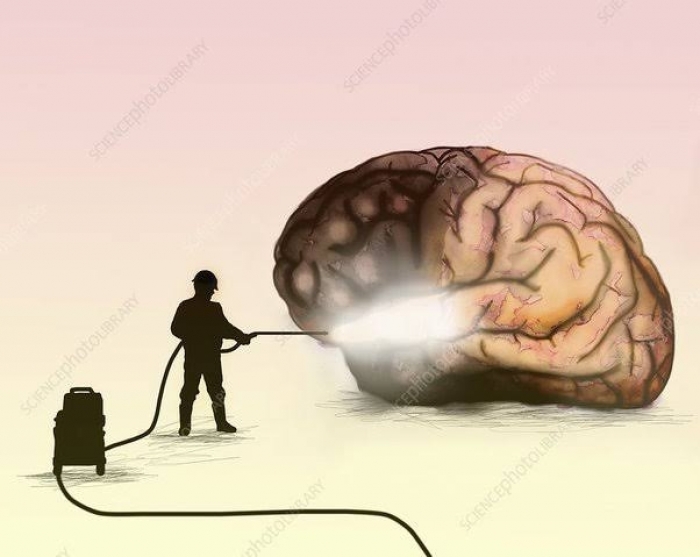As a neuroscientist, I've spent the last 25 years researching the science of memory. A funny question I get a lot from people is: "Am I just getting dumber the older I get?"
I don't blame anyone for wondering this. Many of us find ourselves forgetting important things with increasing frequency over time.
But the good news is that you can prevent those "senior moments" by avoiding four common habits that destroy our memory as we age:
1. Multitasking too much
We rely on an area of the brain called the prefrontal cortex to pay attention to the world around us. Unfortunately, prefrontal function and our ability to focus often declines over time.
Don't miss: Brain expert shares his 7 'hard rules' for boosting memory and fighting off dementia
Multitasking makes it worse. It impairs memory and taxes the function of the prefrontal cortex, sapping the resources that would normally help us form strong memories.
How to improve your memory: Put your phone on focus mode and block out time in your schedule for specific tasks.
Include breaks for meditation, daydreaming, a walk outside, or whatever it is that will recharge you. Just don't try to do it all at once.
2. Not prioritizing quality sleep
The amount and quality of sleep we get often decreases with age, for a variety of reasons. The problem can be compounded by medications, alcohol and stress.
But when you sleep, your brain is hard at work. It flushes out metabolic waste that accumulates during the day. Memories are also activated and connections are made between the different events we have experienced.
How to improve your memory: Sleep deprivation is devastating for the prefrontal cortex and leads fragmented memories. Try to avoid screen time, heavy meals, caffeine and alcohol right before bedtime.
If you have severe snoring problems, consider an assessment for sleep apnea treatment. If you have a bad night of sleep, a daytime nap can help, too.
3. Monotonous activities
We remember events by tying together information about what happened, when it happened, and where it happened. This is called episodic memory.
A cue that's uniquely linked to a specific place and time, like a song that you hadn't heard since high school, or the smell of a dish that your grandmother used to cook can conjure a vivid episodic memory.
This only works if you have experiences that are associated with relatively distinct contexts — not so much with monotonous experiences.
How to improve your memory: You can find yourself with very few memories of a week that was almost entirely spent at a desk alternating between emails and TikTok videos. So consider diversifying your routines.
Take a walk instead of hanging out in the lunchroom. Spending time with a diverse range of people, going to different places, and trying out new experiences will all provide opportunities to build lasting memories.
4. Being overconfident in your ability to remember things
I've had moments where I meet someone and feel certain that I've committed their name to memory, only to be flummoxed later by my inability to recall it.
If you're trying to do something that involves memorization, like when you are introduced to a group of people or trying to learn a foreign language, start by accepting that you are likely to overestimate how much you'll retain.
The second step is to give yourself the opportunity to get it wrong.
How to improve your memory: Rather than rote memorization, the most effective learning happens under circumstances where we struggle to recall a memory and then get the answer we are looking for.
For instance, a few minutes after you learn something, try testing yourself on it. Then do it again an hour later. The more you space out these attempts, the better.
Charan Ranganath is a professor at the Center for Neuroscience and Department of Psychology and director of the Dynamic Memory Lab at the University of California at Davis. He is the author of the new book "Why We Remember: Unlocking Memory's Power to Hold on to What Matters."
Want to land your dream job in 2024? Take CNBC's new online course How to Ace Your Job Interview to learn what hiring managers are really looking for, body language techniques, what to say and not to say, and the best way to talk about pay.
CNBC





























































